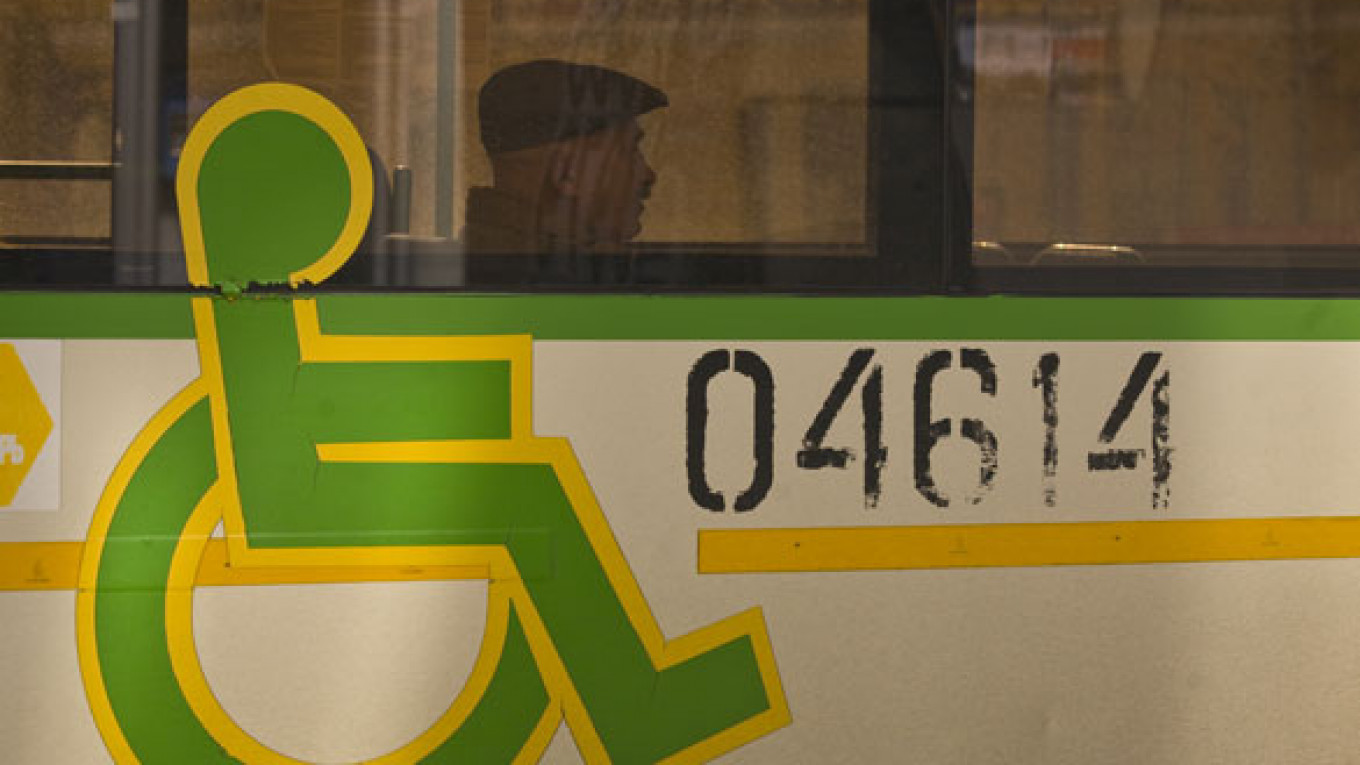Outgoing President Dmitry Medvedev on Thursday signed into law a bill ratifying the United Nations Convention on the Rights of Disabled People, exactly four years after the convention came into force.
The Convention asserts that "persons with all types of disabilities must enjoy all human rights and fundamental freedoms" and identifies specific actions for upholding those rights, including those of accessibility to public facilities, equal employment opportunities, and participation in political life.
Around the world, 110 countries have joined the Convention, which Foreign Minister Sergei Lavrov signed in September 2008, RIA-Novosti reported. In March, Prime Minister Vladimir Putin ordered the government to introduce changes in legislation to implement the provisions of the Convention.
The Convention first came into force on May 3, 2008, after being adopted by the UN General Assembly in December 2006, according to the UN website.
There are more than 13 million disabled people in Russia, or 9.2 percent of the population, Health and Social Development Minister Tatyana Golikova said in February, Interfax reported.
Several instances of apparent discrimination against disabled people have drawn national media attention in recent weeks. Last week, the mother of an autistic child said a Moscow aquarium refused to arrange a tour on a regular working day for a group of autistic students, drawing outcry on social networks and from human rights advocates. Aquarium officials said they were looking out for the well-being of the children by offering to give them a tour on a day when the facility would normally be closed.
And airline Vladivostok Air came under fire last week for barring a disabled 18-year-old girl from boarding a cross-country flight after saying certain documents were needed to certify it was safe for her to fly. Prosecutors said they were investigating the incident.
A Message from The Moscow Times:
Dear readers,
We are facing unprecedented challenges. Russia's Prosecutor General's Office has designated The Moscow Times as an "undesirable" organization, criminalizing our work and putting our staff at risk of prosecution. This follows our earlier unjust labeling as a "foreign agent."
These actions are direct attempts to silence independent journalism in Russia. The authorities claim our work "discredits the decisions of the Russian leadership." We see things differently: we strive to provide accurate, unbiased reporting on Russia.
We, the journalists of The Moscow Times, refuse to be silenced. But to continue our work, we need your help.
Your support, no matter how small, makes a world of difference. If you can, please support us monthly starting from just $2. It's quick to set up, and every contribution makes a significant impact.
By supporting The Moscow Times, you're defending open, independent journalism in the face of repression. Thank you for standing with us.
Remind me later.


